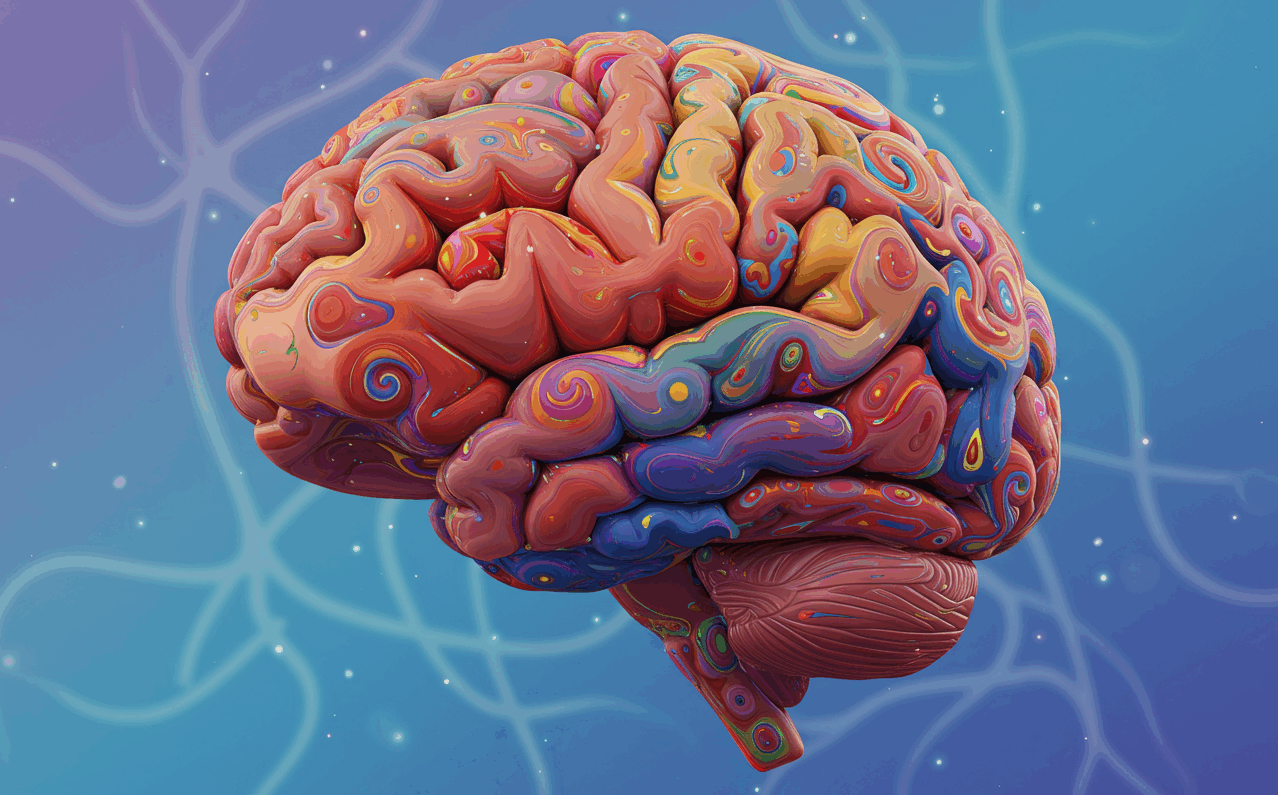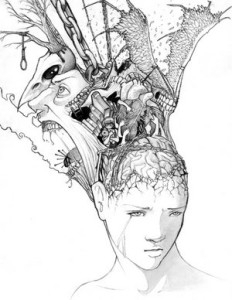The majority of people with ADHD are diagnosed as children or adolescents. However, an overwhelming number of girls and women are never diagnosed. The reason for this is that we often learn to hide our symptoms – very well.
What started my journey of self-discovery was an article I read about 8 years ago about this very phenomenon. The article pointed out that women are often not diagnosed until they enter menopause. I had also researched Adderall, remembering how calm my head was after the hospitalization in 2006, and found out that it is the number one prescribed medication for ADHD in the US. I wanted to get tested, but the test cost $5,000.
When perimenopause began, I had no idea what was happening to me until I started having hot flashes. But doctors in the U.S. would not test my hormone levels or prescribe hormone replacement therapy. With the decline of estrogen and progesterone and the inability to produce adequate amounts of dopamine and norepinephrine, I began to spiral out of control. I could no longer concentrate, remember anything, stop talking and interrupting, control my impulses or filter at all. The world was getting louder and the noise was deafening. I couldn’t sleep anymore, and spent most nights watching TV until I passed out from exhaustion. In addition, my emotions ranged from shame, hopelessness, deep sadness, feeling worthless and stupid, to anger, rage, and anxiety so severe that I could not leave the house. I felt isolated and severely judged. Not a single person, other than my husband, noticed that something was very wrong or cared enough to ask me and offer help. Later on, I learned that estrogen plays a major role in women and ADHD.
A British friend had recognized that I might have a hormone deficiency due to perimenopause, so my German doctor tested my hormone levels. The results showed that I had no progesterone left and that my estrogen was very low. I was put on hormone replacement therapy, which immediately brought some relief. The hot flashes went away, my mood improved, and I slept better. However, things were still not quite right, and my doctor realized that in order to get me well, the cause of my problems needed to be addressed, rather than just treating my symptoms with medication. I was transferred to a psychosomatic clinic for three weeks in order to get properly examined. I was almost immediately tested for ADHD and passed with flying colors. With the help of my therapist and the doctor at the clinic, I was put on medication. I was also taught skills to deal with anxiety, shame, and sadness.
But all of these experiences changed me forever. I deleted my Facebook and Instagram pages.My priorities in life have changed and I see the world and the people in it very differently. I learned that my depression and anxiety were due to undiagnosed ADHD and that I have no mood or personality disorders. I finally know that I am not broken or crazy, I am just wired differently. The isolation and stigmatization I experienced shattered my heart and spirit, but I am in the process of rebuilding them. My symptoms were seen as neuroticism, malice, and ill will, and I was no longer able to properly explain what was happening to me because I couldn’t understand it either.
I know that I have challenges that will forever require medication and that I will never be neurotypical, but I also have assets that can help me thrive. I now also know how important it is to not only be aware of physical and mental health issues, but to seek treatment. In hindsight, I wish I had been diagnosed earlier. Unfortunately, you cannot change the past. So, if you suspect that something might be wrong, I hope for you that you have the resources to get it checked out and get help, because help is out there!

